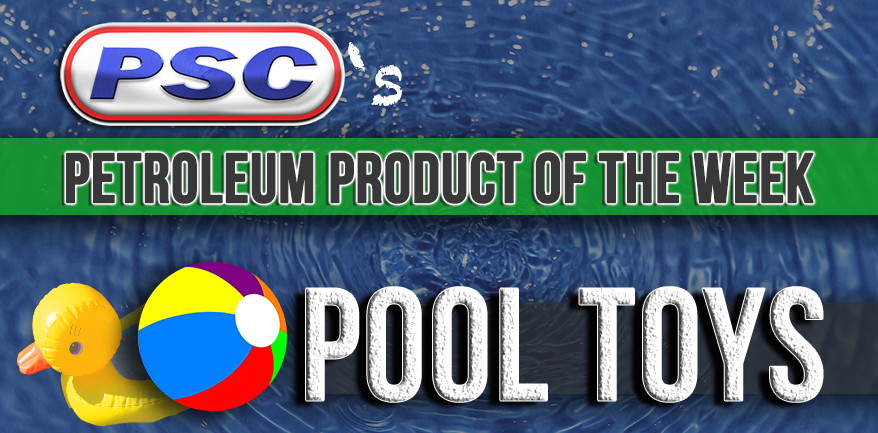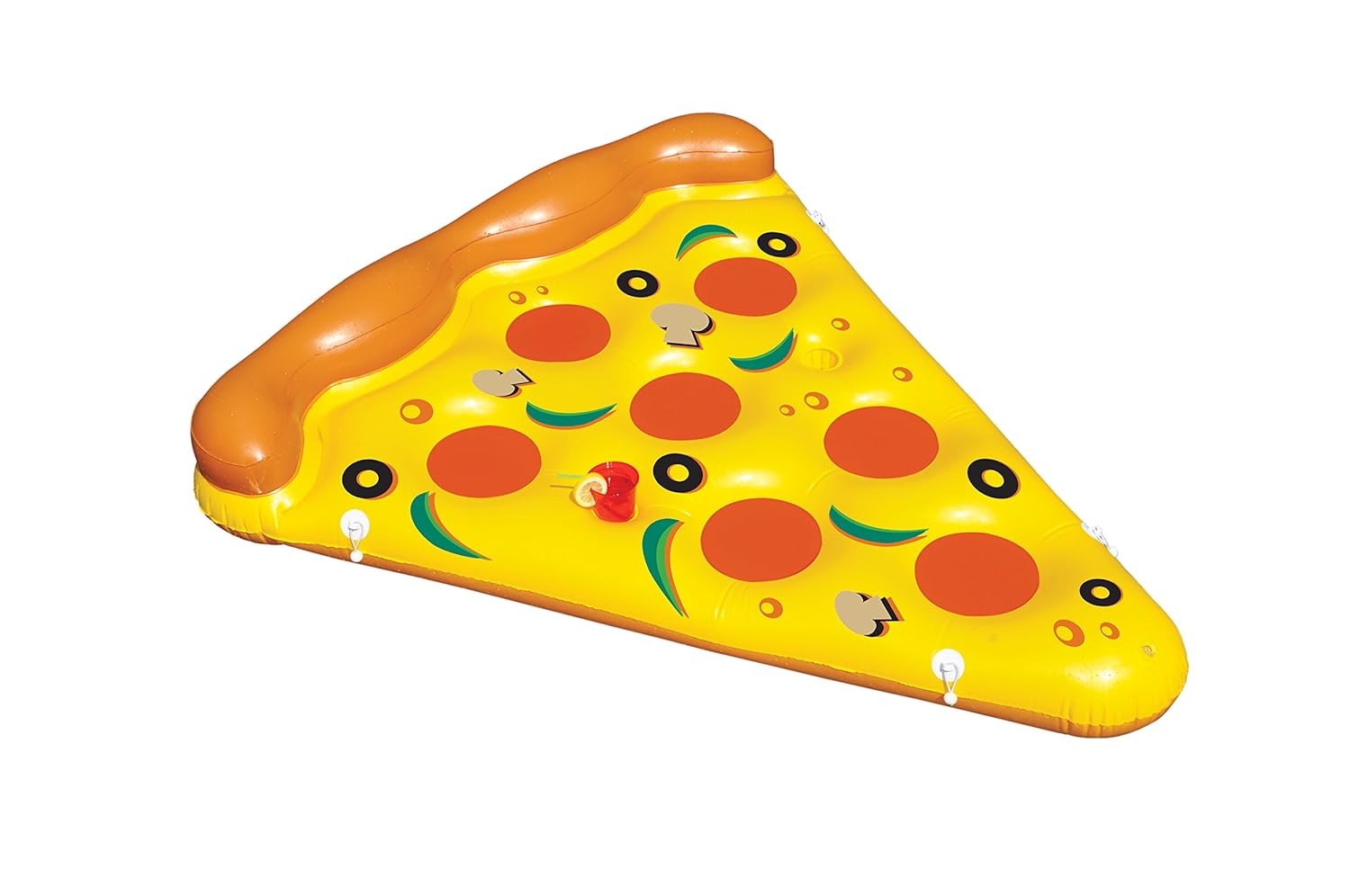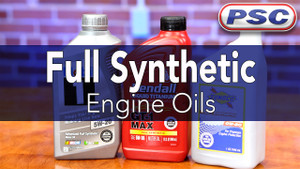Petroleum Product of the Week: Inflatable Pool Toys
By on Jul 09 2016

DON'T LET YOUR KIDS (OR YOURSELF) CHEW ON THEIR GIANT-PIZZA SLICE " POOL RAFT.
As harmless as they may appear, inflatable donuts, beach balls, and swimmy-wimmies " are downright dangerous and guess what? It's not the petroleum-derived plastic that makes them so!
In fact, these toys are often made from PVC, or polyvinyl chloride. You've likely heard of PVC in its pipe-form. This hard-type of PVC is made from a vinyl chloride monomer, processed under specific health and safety controls. During the manufacturing stage, this stuff can be dangerous but once it's all hardened up and ready to head to the home improvement store, it's pretty much harmless (unless you've seen that one horrific Final Destination scene).

PVC pipes are used often in water systems, so the polymer in-of-itself is not at all dangerous to human health. However, PVC must undergo a chemical process called plasticization.
It sounds like a lot, but plasticization can occur with the simple addition of appropriately-named plasticizers the most widely used (especially in pool toy production) being phthalates. These phthalates are some dirty dogs, I'll tell ya:
Phthalates are some dirty dogs!
Phthalates are esters of phthalic acid. (Here's a moment for you to pretend you know what that means). These chemicals are derived from the reaction of alcohol and phthalic anhydride. In recent years, plasticizer manufacturers have tried to lower phthalates in their product, but many inflatable pool toys and pool rafts may still contain the chemicals especially if they aren't made in the USA. The Lowell Center for Sustainable Production has this to say about the synthetic chemicals:
...phthalates are not chemically bound to the PVC polymer. Thus, over time they leach out of products and diffuse into the air, water, food, house dust, soil, living organisms, and other media, particularly under conditions involving heat. "

Additionally, studies have shown that phthalates present in humans are due almost exclusively to diet. So, it may be time, indeed, to hop on the 'ole Atkin's train, or the Paleo train, or the low-carb train, or the Vegan (and totally theoretical) environmentally-conscious hovercraft. OR STOP CONFUSING YOUR RAFT FOR A REAL, GIANT SLICE OF PIZZA!
Anyway there's nothing inherently dangerous about PVC.
Make sure you search out PVC pool toys that don't contain these harmful phthalates. It's not as hard as it used to be, at least.
Know that there are plasticizers that are non-toxic and that may be able to provide you with the same familiar slippery, burning, sometimes scratchy, and overall entirely-uncomfortable sensation that PVC pool rafts commonly offer.
Currently in Pennsylvania, it is so hot that people are clamoring to get into the office. So, please, this weekend, enjoy your pool (or your neighbor's) but leave the phthalate-containing inflatable pool toys at home.







